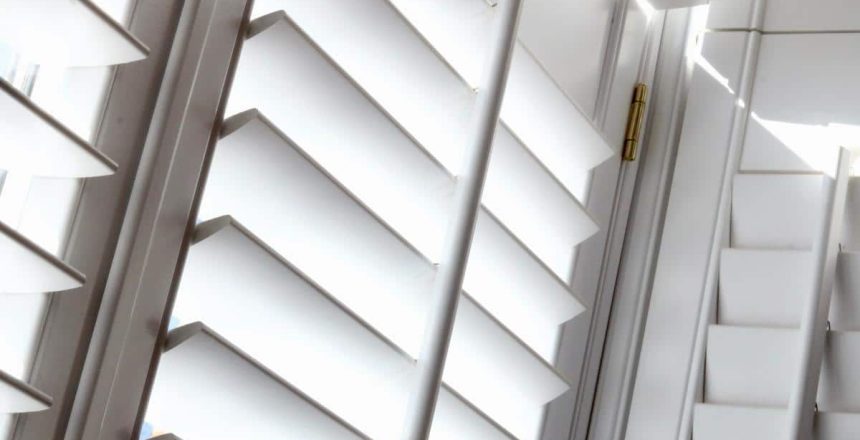The importance of plantation shutter materials cannot be overstated in determining the overall quality, durability, and aesthetic appeal of your window treatments. Selecting the right material is crucial as it directly impacts the longevity and performance of your shutters. Furthermore, the choice of plantation shutter materials affects their ability to provide insulation, light control, and energy efficiency.
High-quality plantation shutter materials ensure that your shutters remain functional and visually appealing for years to come. They also contribute to the ease of maintenance and resistance to common issues such as warping, fading, and cracking. Therefore, investing in premium plantation shutter materials is essential for homeowners seeking a long-lasting and attractive window treatment solution. We’ll start with important questions to ask before buying plantation shutters.
Remember to Ask Questions about Your Plantation Shutter Materials
Where will my shutters come from?
Currently 80% of all plantation shutters being sold in the USA come from offshore, primarily China. The other 20% are assembled or manufactured here in the USA. Of those few remaining companies that proclaim to be “True” manufacturers, less than 1% are truly manufacturers. Most purchase the parts and pieces and cut and assemble plantation shutters. Those shutter components that they use, such as rails, louvers, stiles, frames, tilt rods and hardware come primarily from China. So even if they call themselves an “American Manufacturer” chances are they’re using components made in China.
What will my shutters be made of?
This is another trick question. If you listen to the sales speak out there, you will get all different answers. Poly satin, poly vinyl, composite, faux, engineered wood and so on. Fully 99% of plantation shutters are either made from PVC (plastic), Fiberboard or Wood. Again… PVC, fiberboard, or wood. That’s it.
The Dangers of Buying the Wrong Kind of Plantation Shutter Materials
When PVC breaks down it seeps HCl. Yes, that is hydrochloric acid. Not ideal, especially if you consider that sunlight (ultraviolet rays) or heat speeds up the breakdown. And if someone offers you an unpainted PVC shutter, they are offering you the worst possible exposure scenario. Likewise, fiberboard contains formaldehyde, a known cancer-causing agent. It’s not hard to believe that well over half of the shutters and components the Chinese export are either PVC or fiberboard. If you still need convincing, simply type in to any search engine “Health Hazards of PVC” or “Health Hazards of Fiberboard”. You will breathe this in.
The Structural Integrity of Plantation Shutter Materials
Both PVC and fiberboard will sag under their own weight. You can always tell windows made with either PVC or fiberboard. They have multiple shutters in the same opening where fewer wood shutters can span larger distances without sagging. Salespeople and fabricators that “assemble” shutters will try to sell you what is most profitable for them. They might forget, or worse yet, might not even know some of the details about what they are selling. We’ll provide you a plastic shutter in a shower. Like plastic furniture, it has its place but probably not the living room.
Oh, and as far as warping; wood that is properly harvested, sawn, dried, machined, sanded and finished properly will not warp. Do you have a problem with your wood cabinets warping? Your wood furniture? The wood trim in your house? Leaving a window open and getting a splash of rain shouldn’t cause a problem with properly finished wooden plantation shutters. Ever spill a glass of water on a wood table? Shutters are a vertical surface, and the louvers are shaped elliptically so water can’t stand on them.
How Plantation Shutters Should be Made
Architectural Plantation Shutters is a full wood working facility manufacturing shutters for over 25 years. We have gang rip saws, moulders, profile sanders and sophisticated finishing equipment to give you a “True” manufactured plantation shutter. Our lumber is harvested in America and is FSC certified. The Forestry Stewardship Council is a non-profit licensing organization that has established guidelines for sound environmental harvesting and replanting of trees. When we do occasionally buy wood components, they are FSC certified.
We are the only company in south Florida that is a “True” manufacturer of plantation shutters. We use FSC certified wood, as well as an environmentally friendly, zero VOC waterborne Sherwin Williams paint system. We’ll paint shutters any color. They will not warp, and the paint will never yellow, peel, crack fade, chalk etc. We give you a lifetime warranty on our shutters. That comes from a manufacturer with tangible assets, not just a storefront.
Finally, we are very competitively priced, and we plan to keep “True” American manufacturing alive.
